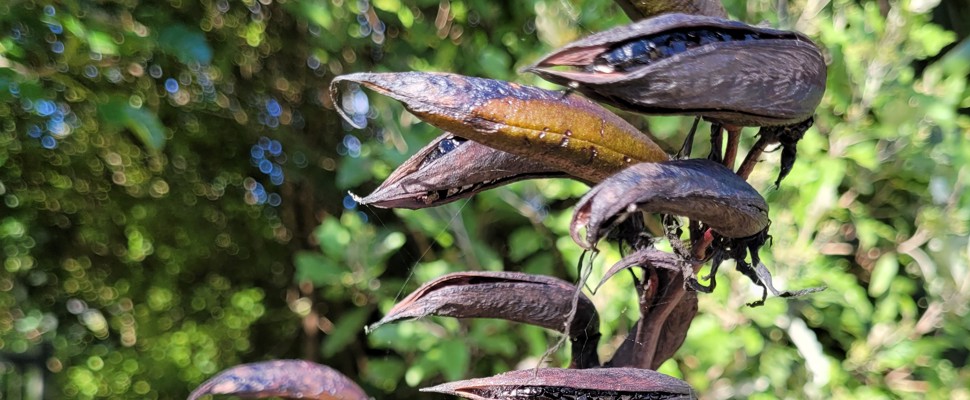
Ecosourcing native plants
Collecting seed and eco-sourcing
What is eco-sourcing?
Eco-sourcing is where seeds are collected from naturally growing plants in the area surrounding the planting site and from places which match its climatic and environmental conditions.
Why do we eco-source?
There are lots of reasons for why we eco-source such as preserving local plant communities, not changing evolutionary trajectories of species, not impacting on local natural vegetation (i.e. by increasing hybridism) and not confusing things for research or taxonomy in the future. It’s important that records are kept of what we plant, where it’s planted, and where the seed was originally collected from so that future conservationists and land managers understand what has happened in the past.
Seed collection guidelines
Seed collection guidelines are important to follow so that we preserve the genetic diversity of a population. We can’t see genetic diversity, so we have to use seed collection techniques that maximise the chance we are collecting a wide range of genetic diversity within a species. Auckland Council has detailed Seed Collection Guidelines for you to use.
Why is genetic diversity important in restoration plantings?
Genetic diversity within a species helps organisms cope with environmental variability such as droughts, exposure, pests, diseases and climate change. Genetic diversity provides potential for future survival of the species and affects future opportunities for the species to evolve.
Key points when seed collecting for restoration projects:
- Ensure you have land owner permission to collect
- Be confident with your plant identification
- Collect as close as possible to the planting site
- Collect from at least 50 individuals
- Take no more than 10% of the available seed on an individual plant
- Ensure seed is ripe before collecting. You can tell this from a colour change in fruit or seed coat, seeds rattling or seed has started to naturally disperse. You can also do a cut test to check the inside of the seed
- Only collect seed from the plant, never from the ground
- Record details of your collection on the bag
- Store dry seed and capsules in a paper bag and fleshy fruit in a plastic bag
- If you are interested in growing threatened species, seek council advice early in your planning
For more information on eco-sourcing visit here.